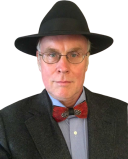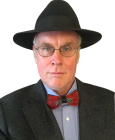Autism
Religion and Autism: Are They Together or Apart?
Recent studies suggest today's autistics tend to reject organized religion. Why?
Posted September 14, 2014 Reviewed by Ekua Hagan
One of the things I love about fall is the fairs and carnivals. The biggest of them all—where I live at least—is the Big E in West Springfield, Massachusetts. It’s two weeks and three weekends of action, and I take thousands of photos there every year.
My favorite places are the circus tent and the concert stage, where I see rock and roll, country, blues and soul musicians, and a host of others too strange to name.
But that’s at night. The circus tent and concert stage are empty in the morning, as early fairgoers shop for merchandise among the vendors, or ride the attractions on the Midway. Every day but Sunday, that is.
It’s easy to imagine a fair as a hotbed of depravity, but on Sunday mornings the stages become churches, and a very eclectic group of people show up for the services. Looking over the crowd, I saw local citizens, ride operators, circus performers, policemen, ticket takers... all together “in church” except it’s not a church, it’s s concert stage.
And for a brief moment, the Bishop of Springfield replaces the rock stars who usually call this stage home. Bishop Mitch Rozanski is new to Springfield, and I went to his service because I’d never heard him speak. As I listened to his homily, I thought of my ancestors, many of whom were clergymen, and it made me consider their own words, and where they may have come from.
As an autistic adult, I have never been what you’d call religious, but I’ve always thought of myself as spiritual. I never thought of my religious beliefs as being shaped by autism, but a conversation five years ago made me rethink that. Catherine Caldwell-Harris—a psychology professor at Boston University—approached me after a talk I did at MIT. She was doing a study on autism and its influence on religious belief, and her findings were shaping up to be very interesting.
According to her study, autistic people today are much more likely to reject organized religion in favor of their own independently constructed belief system, just as we are more likely to be agnostics or atheists.
When she told me that, I recalled what Simon Baron-Cohen and others have written about autistic people’s tendency to systematize and our love of routine, rationality, and logic. All that makes sense, and I can see how a strongly rational person would reject religious dogma if it does not seem logical.
Five years passed, and I spent some time learning about my ancestors. I’d always known my father preached before becoming a professor of philosophy, but it turns out that I have many more clergymen in my family tree, including Rowland Jones, who was the first rector of the Bruton Parish church in what was then Middle Plantation, Virginia.
The more I’ve learned about my ancestors and the threads of autism that tie my family tree together, the more I think that many of my clergymen ancestors were on the autism spectrum too. How might I square that evolving belief with the idea that we autistics are less likely to be part of organized religion?
What if the tendency to reject organized religion is a modern development among autistic people? In Jones’ day—he took over Bruton Parish in 1674—the opposite situation may well have prevailed. At that time, I think autistic people may have been drawn to organized religion and indeed I think many of the church’s early leaders may well have been on the spectrum.
The more I read of early religious texts, the more evidence I see of autistic thought processes—those same processes Dr. Baron Cohen cites as reasons some of today’s autistics reject organized religion entirely. We also see autistic thought expressed in the great works of civil engineering that survive from the ancient world.
Even now we are discovering new mathematical relationships and celestial alignments in buildings and monuments that were constructed hundreds or thousands of years in the past, long before the development of higher mathematics as we know it today, and long before today’s techniques of civil engineering were developed.
Who could have designed such structures? It would have to be someone with a strongly systematizing and structured mind. It would have to be someone who could visualize complex mathematical relationships instinctively in his head. When we think of the traits those early engineers needed, they are mostly traits we associate with the upper end of the autism spectrum today.
And most of those structures were built by the churches of their day. When you consider that most of the enduring ancient structures were originally built for a religious purpose it gives pause for thought—how did those churches grab such a lion’s share of the engineering talent of the day?
I find the grace and structure of religious services comforting. As I’ve attended services in other languages elsewhere in the world I’ve found that true regardless of the denomination. Even when I don’t understand the words I am soothed by the cadence, the rhythm, and the melodies that were developed over hundreds and in some cases thousands of years.
Four hundred years ago, the science that autistics embraced “instead of religion” in studies like Dr. Caldwell-Harris did not exist. Back then, when people talked of something being cursed, or hearing the wind howl like a banshee, those were literal statements. In contrast, the church was a bastion of structure, logic, and reason for its era.
In those years, the church and the military were two places a young man could go to find order and rationality. If you were a thinking sort of person, the church offered the kind of home some of us seek in universities and laboratories today.
Twenty years ago, it was a mystery to me why anyone would want to be part of a church. Today, I can easily understand my ancestor’s decisions to take up preaching, and I can definitely see why autistics would have found a home in the church. At the same time, I understand the reasons some may reject the church today. I sure see the attraction of science, but I don't see it as one or the other. One can embrace both, but that happens less and less today.




